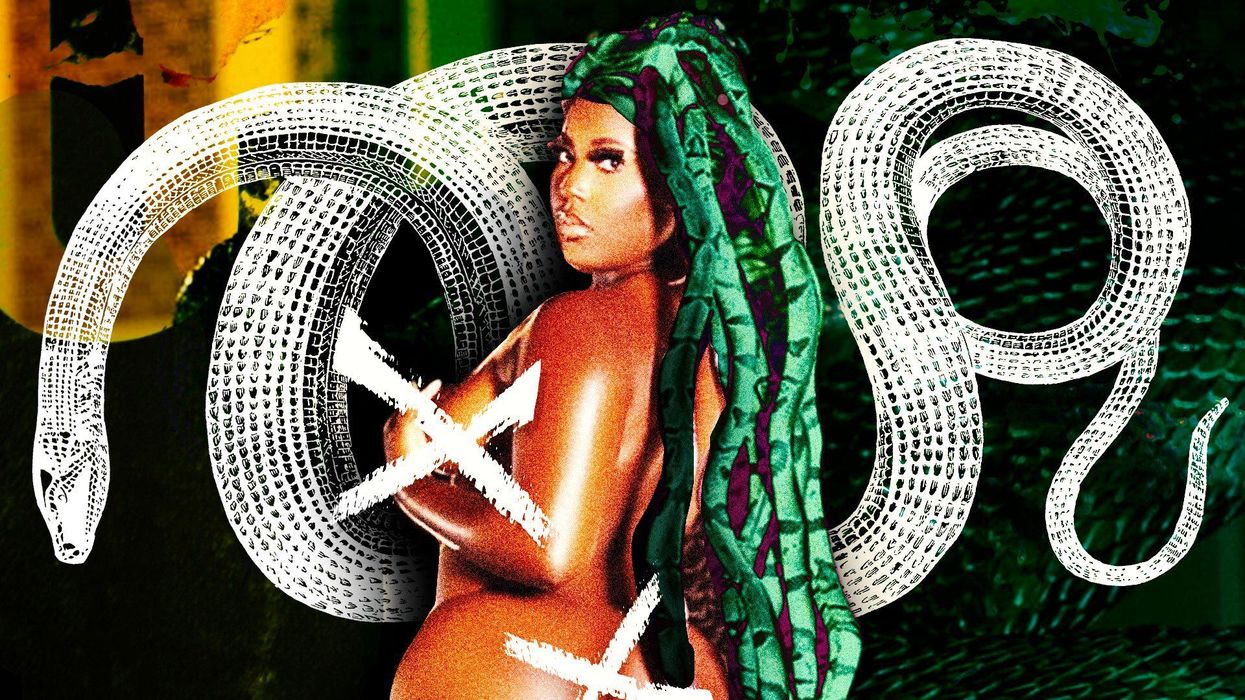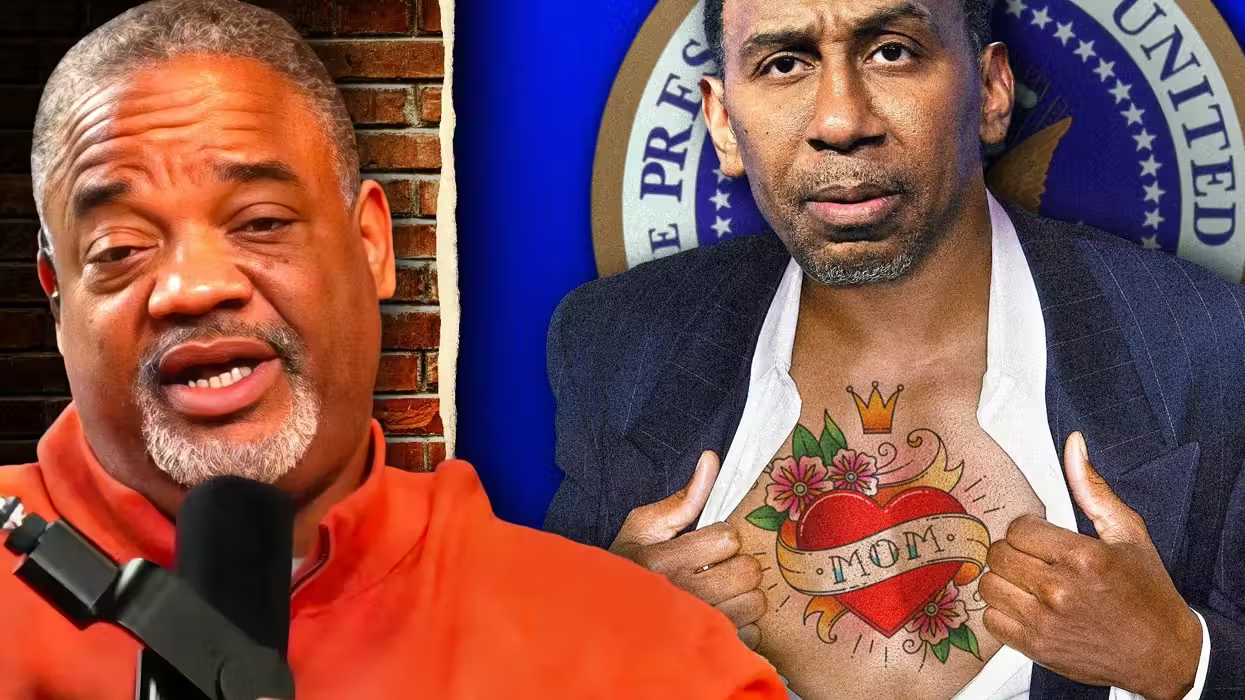
© 2026 Blaze Media LLC. All rights reserved.
Squires: The FAMU 'junkiepox' outbreak was caused by a cultural immune system that allowed dysfunction to spread for decades
August 02, 2022
A young woman who goes by TericaStar on Instagram recently went viral for posing naked in front of Florida A&M University’s famed rattler statue. The aspiring rapper and “body positivity” advocate posted the image of her bare back — and bottom — facing the camera in a Medusa-inspired snake wig to celebrate completing her master’s degree in education.
Her post prompted a spirited debate online about personal decorum and respect for historically black colleges and universities (HBCUs). One thing the internet discourse has not done is explain what would motivate a young woman finishing graduate school to perform such a degrading act of public spectacle.
The answer is simple: TericaStar suffers from a full-blown case of “junkiepox,” the cultural disease that makes people engage in public displays of destructive behavior in pursuit of attention, fame, and influence. The people who suffer from this sickness are as addicted to affirmation and notoriety as some people are to drugs and alcohol. They wake up every morning looking for a hit and need to push the boundaries of societal norms farther and farther to achieve the same type of euphoric high.
Junkiepox is caused by the long-term failure of any group, institution, or organization to enforce standards of personal conduct and censure self-destructive behavior. This cultural disorder is not confined to one specific demographic, but that doesn’t mean it isn’t more prevalent among some groups over a period of time.
TericaStar caught a case of full-blown junkiepox because of two interrelated comorbidities. One is the prevalence of black female artists and entertainers like Lil’ Kim, Nicki Minaj, Cardi B, and Lizzo who strategically used sex and sexuality to promote their music and sell their images. The other is a weakened cultural immune system within black America that fights off right-of-center political thought but has allowed destruction, dysfunction, and degradation to run rampant for decades.
In the 1990s, concerned elders like C. Delores Tucker and Reverend Calvin Butts warned about the impact of glorifying violence among black men and referring to black women as “b***hes” and “h**s” in songs and videos. Tucker once stated that “You can't listen to all that language and filth without it affecting you.”
Their concerns were dismissed in the name of making a handful of black artists very wealthy. Several artists, including Tupac, Jay-Z, and Lil’ Wayne mentioned her by name in their songs. No one put a finer point on the disease she was trying to fight than Eminem, who once rapped “Tell that C. Delores Tucker slut to suck a d**k.”
The message from the young men who pioneered gangster rap in the 1990s is the same as the one from the women who dominate the “whore hop” genre today: Being degraded by people higher up on the social hierarchy is oppressive, but demeaning yourself is empowering.
This is the mindset that motivates older women like Maxine Waters and Patti LaBelle to complement artists like Megan Thee Stallion and City Girls. They affirm behavior that they should lovingly correct because all that matters is girl power and getting paid. The girls and young women who emulate these artists — from getting Brazilian butt lifts to making raunchy social media posts — have gotten the message. They falsely believe their primary contribution to the world is their ability to shake their butts and show their breasts.
Matriarchs of a previous generation, largely shaped by the black church, would have nipped that lie in the bud. They would have given the young women coming after them the wisdom embodied in the first verse of Proverbs 14: “Every wise woman builds her house, but a foolish one tears it down with her own hands.”
Women who see themselves as “bad b***hes'' cannot build homes and legacies that will stand the test of time. They attract men who see women the same way, fit for baby-mommadom but not marriage.
The one factor that might prevent TericaStar’s strain of junkiepox from spreading too far is the fact that her outbreak occurred at one of the most prestigious HBCUs in the country. There is a level of personal investment that black college graduates have in their institutions that rises above general racial allegiance. The same goes for members of black fraternities and sororities.
It is the one instance in which dysfunctional and degrading personal behavior can lead to swift and severe public censure. The "Afristocracy" knows how to police its own.
The quick rise and sudden fall of the VH-1 show "Sorority Sisters" is a perfect example of this phenomenon in action. The same network that gave us "Basketball Wives," "Flavor of Love," and the "Love & Hip Hop" franchise tried to apply the same formula (e.g., drama, catfights, and fighting) to black sororities such Alpha Kappa Alpha and Zeta Phi Beta.
K Michelle, one of the stars of "Love & Hip Hop: Atlanta," admitted that while “she acted a fool” on her television show, she felt the reputations of black sororities should be treated as “sacred” and not exploited for personal gain.
She was not the only one. Prominent black members of Greek letter organizations used their platforms to criticize the show, organize boycotts, and put pressure on sponsors. The organizations themselves also acted swiftly to protect their images. Delta Sigma Theta expelled five of the cast members who appeared on the show, one of whom later appeared on Steve Harvey’s show to apologize to a fellow sorority sister.
The show was pulled off the air after one month.
If the black leadership class had applied even a fraction of that decisiveness to protecting high standards of conduct for the larger community, the state of black culture would look very different today. If Snoop Dogg and Cardi B swapped cultural capital and influence with Clarence Thomas and Condoleezza Rice, generations of black children would be exposed to more political thought and less social rot.
We missed an opportunity for self-correction in the 1990s, but it’s never too late to do the right thing. One of the first steps to move in a better direction is the type of brutally honest self-examination needed to explain why we demand and defend music that promotes the murder of black men and the degradation of black women.
Understanding that will help us turn from following people motivated by personal gain back to the faith of our forefathers who trusted God in times of racial oppression and understood that public morality is a necessary component of community uplift. This type of spiritual transformation will not be easy because every part of the black body politic — from political campaigns to pulpits — has been impacted by the decline in behavioral standards.
Twerking in a thong for attention is no longer exclusive to strippers and aspiring Instagram models. Now, it is how state representatives drum up support for their re-election campaigns and how graduate students celebrate completing their degree program.
TericaStar behaves like a young woman who grew up without a loving engaged father in her life. The absence of black men from their households and the silence of black men in the public square are both a cause and symptom of the feminization of black pop culture. This has made junkiepox even more viral in the social media age.
Nothing displays the impact of gelded black males more clearly than the long line of black preachers, artists, politicians, pundits, and influencers who reacted with sadness and anger to the prospect of more black babies being born in post-Roe America. They parroted the liberal talking points about not telling a woman what to do with her body as if men have no part to play in human reproduction.
These same men are vocal supporters of K-12 public education, which is heavily influenced by single women and self-identified members of the LGBTQIA+ community at every level from the leadership of teachers unions to school principals and educators in the classroom.
There is a reason queer cat ladies can tell parents how to raise their children, but men can’t find the courage to stand up for their own offspring. If the spirit of feminism is ever to be exorcised from the body politic, the cultural clerics performing the cleansing ritual will find much more resistance from male allies — including black men — than members of the sisterhood.
This is why fathers, families, and faith leaders must take back their responsibility to train up future generations, which includes correcting behaviors they know are self-destructive. We can no longer afford to bring what happens in the brothels and back alleys into the mainstream. Our girls need to know that they were created in the image of God and can contribute more to this world than a big butt and a smile.
Want to leave a tip?
We answer to you. Help keep our content free of advertisers and big tech censorship by leaving a tip today.
Want to join the conversation?
Already a subscriber?
Contributor
Delano Squires is a contributor for Blaze News.
DelanoSquires
more stories
Sign up for the Fearless newsletter
By signing up, you agree to our Privacy Policy and Terms of Use, and agree to receive content that may sometimes include advertisements. You may opt out at any time.
Related Content
© 2026 Blaze Media LLC. All rights reserved.
Get the stories that matter most delivered directly to your inbox.
By signing up, you agree to our Privacy Policy and Terms of Use, and agree to receive content that may sometimes include advertisements. You may opt out at any time.







